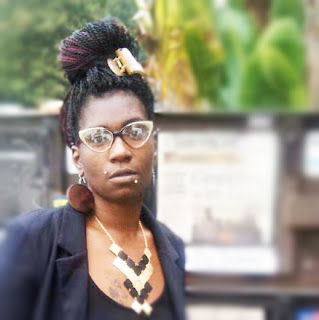PRESS
RELEASE CONTACT: Claire Hermann
April
4, 2013 (919) 533-9677,
claire@ncaan.org
HIV/AIDS advocates from across North
Carolina will gather in Raleigh on Tuesday, April 9, for a day of rapid-fire discussions and workshops with
leaders in the HIV/AIDS advocacy community.
“I come to be
encouraged, educated and inspired, and to lend my voice to the discussion,” said Savalas Squire, a minister from
Winston-Salem who is living with HIV.
“Too many in our state
are struggling to make ends meet, find quality healthcare, and find love and
acceptance after being diagnosed as being HIV-positive,” said Squire.
The conference builds advocacy capacity
among the community of people fighting for the rights of the 35,000 people
living with HIV/AIDS in North Carolina and those at risk.
Many advocates will be
meeting with legislators as well.
“Access to healthcare is the key to
halting the HIV epidemic in North Carolina,” said Lisa Hazirjian, executive
director of the North Carolina AIDS Action Network.
“As our elected officials make decisions
that will have a profound impact on public health, it’s important that they
hear from the people who are most affected,” Hazirjian said.
A key issue for advocates will be a
looming $8 million cut to the AIDS Drug Assistance Program, which provides
medication to thousands of low-income clients. Governor McCrory’s state budget
proposal included the sharp reduction in funding.
Advocates say those cuts could bring
back long waiting lists and severely restricted lists of covered medications.
They have collected more than 3,500 postcards in support of the program,
roughly one signature for every 10 people living with HIV in North Carolina.
Also on the policy agenda will be
defending access to sexual health information and treatment for youth and
decriminalizing syringes to prevent needle-stick transmission of HIV.
“Getting stuck by a
needle was one of the scariest moments of my career,” said conference attendee Jen Earls, a former police officer.
“I believe a
combination of harm reduction programs and syringe decriminalization will make
a vast difference by reducing needle-sticks to law enforcement officers and
reducing HIV and hepatitis in the community," Earls said.
It will be a busy day in Raleigh. NC
Women United and the Historic Thousands on Jones Street People’s Assembly Coalition
will hold their advocacy days on Tuesday as well.
“We will be standing in solidarity with the North Carolina State
Conference of the NAACP, Historic Thousands on Jones Street People's Assembly
Coalition, and NC Women United in support of policies that value the voices
and well-being of all North Carolinians,” said Hazirjian.
The North Carolina AIDS Action Network
and the North Carolina Harm Reduction Coalition will host the conference.
Community Partners include the
Adolescent Pregnancy Prevention Campaign of North Carolina, Black AIDS
Institute, Crape Myrtle Festival, Duke AIDS Legal Project, Equality NC, HIV-Hope
Project, NC Fair Share, Rainbow Community Cares, Regional AIDS Interfaith
Network, Southern Harm Reduction and Drug Policy
Network, and Western North Carolina AIDS Project.
The conference is sponsored by AIDS
United, the Elton John AIDS Foundation, Bristol Myers Squibb, and PhRMA. For
more information, visit www.ncaan.org.









